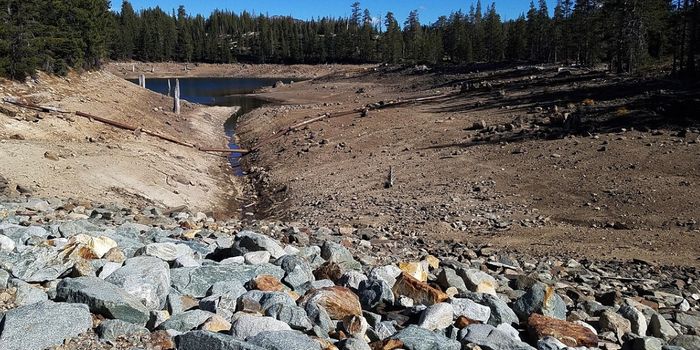Dust and lightning storms in India kill hundreds
Schools are closed today in Haryana, India due to extreme weather from thunderstorms, high winds, and damage from last week’s dust storms, which killed over 100 people in Uttar Pradesh. The dust storm was the worst in over 20 years, according to Quartz, with wind speeds up to 82mph, heavy lightning, and even hail. “Many of the dead were sleeping when their houses collapsed after being struck by intense bursts of lightning,” reported the BBC. Others were just walking by when walls collapsed on them.
"People are in shock and can't believe that such destruction happened in their village. I met a family which lost four children last night - it was so disturbing. The family can't believe it. They told me that their children were playing in the house when a wall collapsed on them," journalist Laxmikant Pachouri told the BBC. "Their parents are so distraught and cannot stop crying." The Uttar Pradesh government committed to giving families of the dead a compensation of 400,000 rupees, equivalent to roughly $6,000, a small price for the loss of a loved one.
The crazy weather is expected to continue throughout today, tomorrow, and perhaps even the rest of the week. The India Meteorological Department (IMD) put out weather warnings for many regions, including Jammu and Kashmir, Uttarakhand, Himachal Pradesh, Punjab, Haryana, Chandigarh, Delhi and western Uttar Pradesh. The storms, though related to the western disturbance low-pressure system that sends moisture from the west to India, are being exaggerated by high temperatures.
Source: Skymet/www.weatherbuff.com
The effects from climate change are impossible to ignore in India, where heatwaves are producing temperatures over 40 degrees Celsius in some areas. Currently, Andhra Pradesh is experiencing temperatures of up to 44° C in some parts and 14 people died from the 41,000 documented lightning strikes that occurred on Wednesday. Over the past four years, heatwaves have killed over 4,600 people in India.
“Local thunderstorm formation is impacted by temperatures,” explained climate scientist Roxy Mathew Koll to the Hindustan Times newspaper. “All over India, temperatures are abnormally high, [and] even if they are not the drivers, they will aggravate the situation by causing the atmosphere to become more unstable.”
Sources: The Hindustan Times, BBC, Quartz, The Times of India, Business Standard










